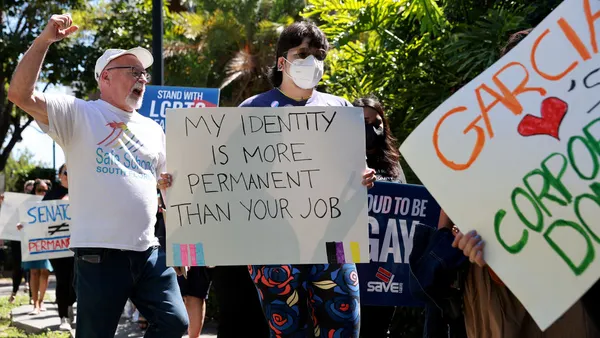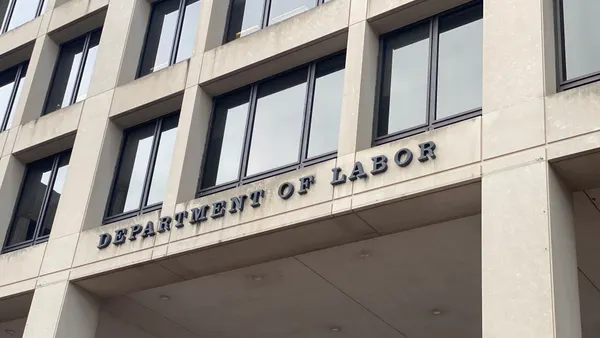Dive Brief:
- If a school offers both in-person and online learning options and a parent chooses the latter, the parent may not take paid leave under the Families First Coronavirus Response Act (FFCRA), the U.S. Department of Labor (DOL) said in guidance released Aug. 27. "FFCRA leave is not available to take care of a child whose school is open for in-person attendance," DOL said.
- Parents may, however, use FFCRA leave on days when children are not permitted to attend school due to hybrid in-person and online arrangements, the agency said. A child may be allowed to physically attend school only on their allotted in-person attendance days under such a model. Schools are "effectively ‘closed'" to workers' children on those remote learning days, DOL said.
- Parents may also take leave under the FFCRA if a school begins the year remotely with the intent to evaluate the circumstances and possibly reopen for in-person learning later on. If the school reopens, a parent's eligibility for leave "will depend on the particulars of the school's operations," DOL said.
Dive Insight:
When President Donald Trump signed the FFCRA into law March 18, employers knew only the basics of what it provided workers in terms of leave. Generally, it requires that employers with fewer than 500 employees provide two buckets of emergency paid leave. It expanded the Family and Medical Leave Act to guarantee paid leave for workers who had to care for a child whose school or care provider closed due to COVID-19.
Since March, DOL has issued several sets of guidance that specify when working parents are eligible for FFCRA leave. In June, for instance, the agency said employees can take paid leave to care for children if a summer camp or program shuttered due to the pandemic.
As employers head into the sixth month of the pandemic, they may find some parents running out of FFCRA leave. Covered employers must provide up to 12 weeks of leave paid at two-thirds of a workers' regular rate of pay if the employee is caring for a child whose school or care provider is unavailable.
When employees exhaust their FFCRA leave, employers need to consider that "leave is only the start of the question," Laura Lawless, a labor and employment partner at Squire Patton Boggs, previously told HR Dive. While HR must understand the types of leave employees are entitled to — including state statutes similar to the FFCRA, vacation and paid time off benefits — employers need to demonstrate flexibility to prevent workers from leaving in droves, Lawless said.
"It's a time when employers have to be very flexible in their thinking," she said. "This is also a time to think about what you should do, [not just] what you have to do."













